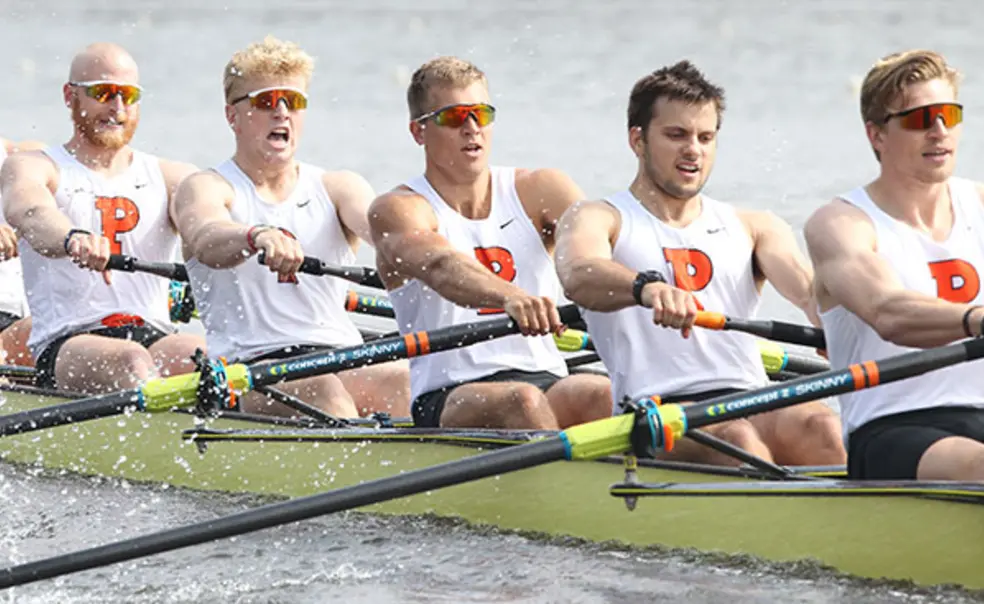A World of Talent
With an international roster featuring 13 from the U.K., Tigers excel on the water
At age 13, David Bewicke-Copley ’20 would jump into an old single shell and paddle up the Thames River at a leisurely pace to fulfill a mandatory sport requirement at school. Tim Livingstone ’18 dabbled in rowing for a few months at age 14 before picking it up seriously a few years later when he discovered he had a knack for the indoor rowing machine. Chris Lawrie ’20 began rowing after suffering a knee injury while playing cricket at age 12. And Tom George ’18 first rowed at 15, when he was looking for an activity to keep him fit for rugby.
All four have contributed to the men’s heavyweight varsity eight this year as part of an exceptional talent pipeline from the United Kingdom.
“There’s a lot of interest in coming to the United States because they’re excited to row at a very high level in college, and it is also tied very close to a great academic experience,” said head coach Greg Hughes ’96.
On a men’s heavyweight roster with more than 50 athletes, international students have a notable presence: England leads the way with 13 rowers, and others on the team have come from Germany, Canada, Puerto Rico, Brazil, Australia, India, New Zealand, and South Africa.
At the Eastern Sprints May 13, Princeton won four medals, including gold in the second-varsity eight, and placed second in overall team points behind Yale. The Tigers were slated to finish their season June 1–3 at the IRA Regatta on Mercer Lake in West Windsor.
Princeton is finding the “full package” when looking at international recruits, Hughes said. “They’re not just talented rowers; they’re also great students. Both those things have been developed, and that’s the attraction.”
Livingstone had already applied to read philosophy at several U.K. universities when he met with U.S. coaches at the end of his junior year in high school. “The opportunity to literally and literarily broaden my horizons was too large to pass up,” he said.
While on his official recruiting visit, Bewicke-Copley was struck by how engaged Princeton athletes were in every aspect of their collegiate careers. “The guys were performing at the highest standard on the water, but then also performing to an equivalent standard in the classroom and holding each other to that standard,” he said.
Bewicke-Copley and Lawrie said they were attracted to the liberal-arts system at Princeton, which gives students more time to decide on an area of study than in the U.K.
On the water, some things were different as well.
Lawrie pointed out differences in the language used on the water — in the U.S., coxswains say “weigh enough” to direct rowers to stop rowing, whereas British coxswains say “easy there” — as well as in the more professional coach-athlete relationship in the U.S.
Accustomed to lower-intensity sessions back home, Bewicke-Copley was rather shocked at first by the noise and hype that accompanies the “snap-the-oar-in-half ”-type training sessions that make up a larger portion of the training at Princeton.
But regardless of where the athletes come from, Hughes said, “the common goal is to get better, to move forward, and move up in their rowing careers.”
A version of this story appeared online May 11.












No responses yet